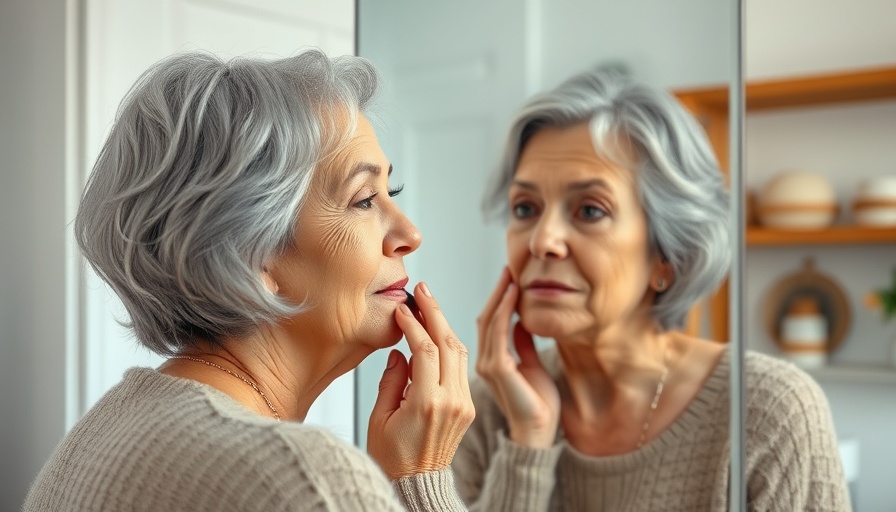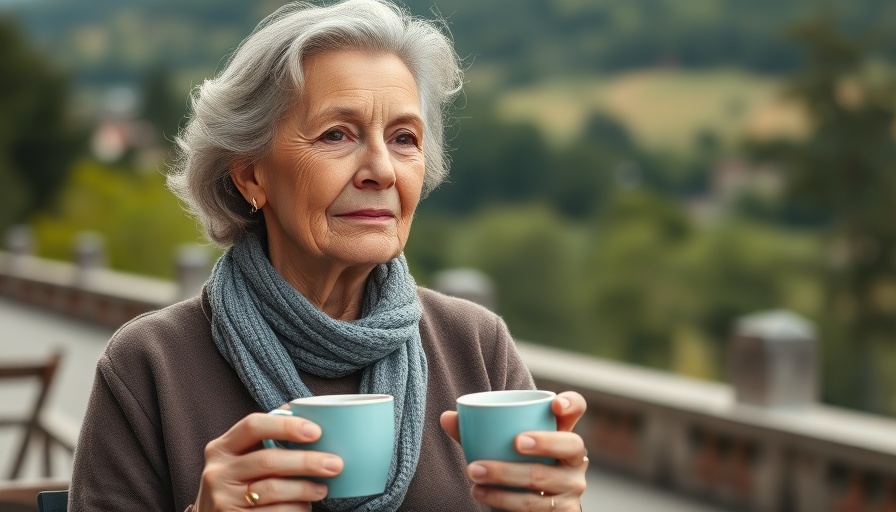
The Overlooked Risk: Eye Health After Menopause
As women approach the age of 40, many start to notice changes in their bodies and health, but one area that often gets overlooked is eye health. Did you know that the risk of blindness becomes more pronounced during menopause, particularly for women? With hormonal shifts affecting the delicate balance required for optimal eye function, understanding these changes is crucial.
Why Hormones Matter for Your Eyes
It’s not just reproductive health that hinges on hormones; they also play a vital role in how our eyes function. Throughout a woman’s reproductive years, estrogen, testosterone, and progesterone work in concert to nourish and protect the eyes. As menopause approaches, however, the levels of these hormones drop dramatically. This fluctuation can lead to symptoms such as dry eyes, which according to health experts, can affect vision quality significantly.
Wise Choices: 6 Ways to Safeguard Your Vision
Here are six actionable steps women can take to protect their eyes as they transition into—or beyond—the age of 40:
- Stay Hydrated: Drinking enough water is essential for maintaining moisture in your eyes. Proper hydration contributes to eye lubrication, minimizing dryness and irritation.
- Protect Your Eyes from UV Rays: Always wear sunglasses that block 100% of UV rays. This simple step can help prevent cataracts and other sun-related eye issues.
- Incorporate Omega-3 Fatty Acids: Include foods rich in Omega-3s, such as fish, walnuts, and flaxseeds, in your diet. Omega-3s are known to reduce inflammation and may alleviate dry eye symptoms.
- Regular Eye Exams: Make it a point to schedule comprehensive eye exams every couple of years. Early detection of potential issues can make all the difference.
- Utilize Artificial Tears: Over-the-counter artificial tears can provide relief from dry eyes. They work to supplement natural tears and improve overall eye comfort.
- Manage Your Screen Time: If you work at a computer, practice the 20-20-20 rule—every 20 minutes, look at something 20 feet away for 20 seconds. This helps to reduce strain on your eyes.
Signs That You Shouldn't Ignore
Being aware of the symptoms of potential eye problems is vital. Increased sensitivity to light, blurred vision, or persistent dry eyes are critical cues that should prompt a conversation with your healthcare provider. These signs can sometimes indicate more severe issues that need professional care.
The Impact of Age and Gender on Eye Health
Interestingly, studies suggest women are 12% more likely to experience vision loss compared to men, largely due to hormonal variations during menopause. The implications of these changes extend beyond personal health; they can affect various aspects of life, from the ability to engage in daily activities to overall well-being.
Embracing Change: How to Feel Empowered
While changing hormones can be daunting, it's also an opportunity to take charge of your health. Embracing regular eye care, along with a healthy lifestyle, can prove beneficial. Being proactive in these areas not only helps maintain good vision but also supports overall health as one ages.
Final Thoughts: An Invitation to Act
Your eyesight is among your most valued senses. As you journey through the changes that accompany aging, particularly as they relate to hormonal shifts, remember that safeguarding your vision is within your control. Make a commitment today to nourish your eyes and pay attention to their needs as you age. Reach out to your doctor or an eye specialist to discuss any concerns you may have—it’s never too early to start prioritizing your eye health!
 Add Row
Add Row  Add
Add 



Write A Comment